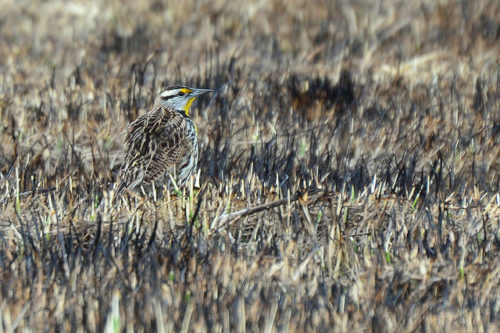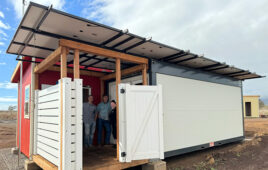Audubon Minnesota is encouraged to hear that Xcel Energy will require solar project proposals to include details about wildflowers and other native plants. Solar developments that include native plants can provide habitat for birds that are facing increasing challenges in a changing climate.
“Every patch of habitat counts,” said Rebeccah Sanders, Audubon’s VP for the Great Lakes and Upper Mississippi Flyway. “Half of Minnesota’s birds are threatened by climate change, according to the Audubon Birds & Climate Change Report. Xcel Energy’s actions will help Minnesota achieve renewable energy goals, which help to curb the impacts of carbon pollution, while also providing much-needed sustenance for our birds, bees, and butterflies.”
In 2016, Audubon Minnesota, Fresh Energy, and other partners supported the passage of a bill that sets a standard for pollinator-friendly plants on solar sites. This standard is based on the Board of Water and Soil Resources’ Pollinator-Friendly Solar Scorecard, found here: http://www.bwsr.state.mn.us/practices/pollinator/project_planning_assessment_form.pdf
According to Xcel Energy, each new solar project proposal in Minnesota must include a completed copy of the scorecard. Xcel is expected to procure more than 3,000 MW of ground-mounted solar by 2030 which would cover more than 20,000 acres. Under this new practice, that’s a lot of additional habitat and a great opportunity to lower carbon emissions.
The use of this scorecard by a major energy producer sets a new standard for developers across the country because Xcel is the first utility to formally require the scorecard in its solar RFP process. We encourage more utilities follow suit. Renewable energy reduces the impacts of climate change on birds and their habitats, and we are enthused to support the responsible development of new energy sites.
Audubon will continue to work with partners to monitor how and where solar developers use bird-friendly plants. In the meantime, this is a big step in the right direction.
News item from the National Audubon Society






Tell Us What You Think!